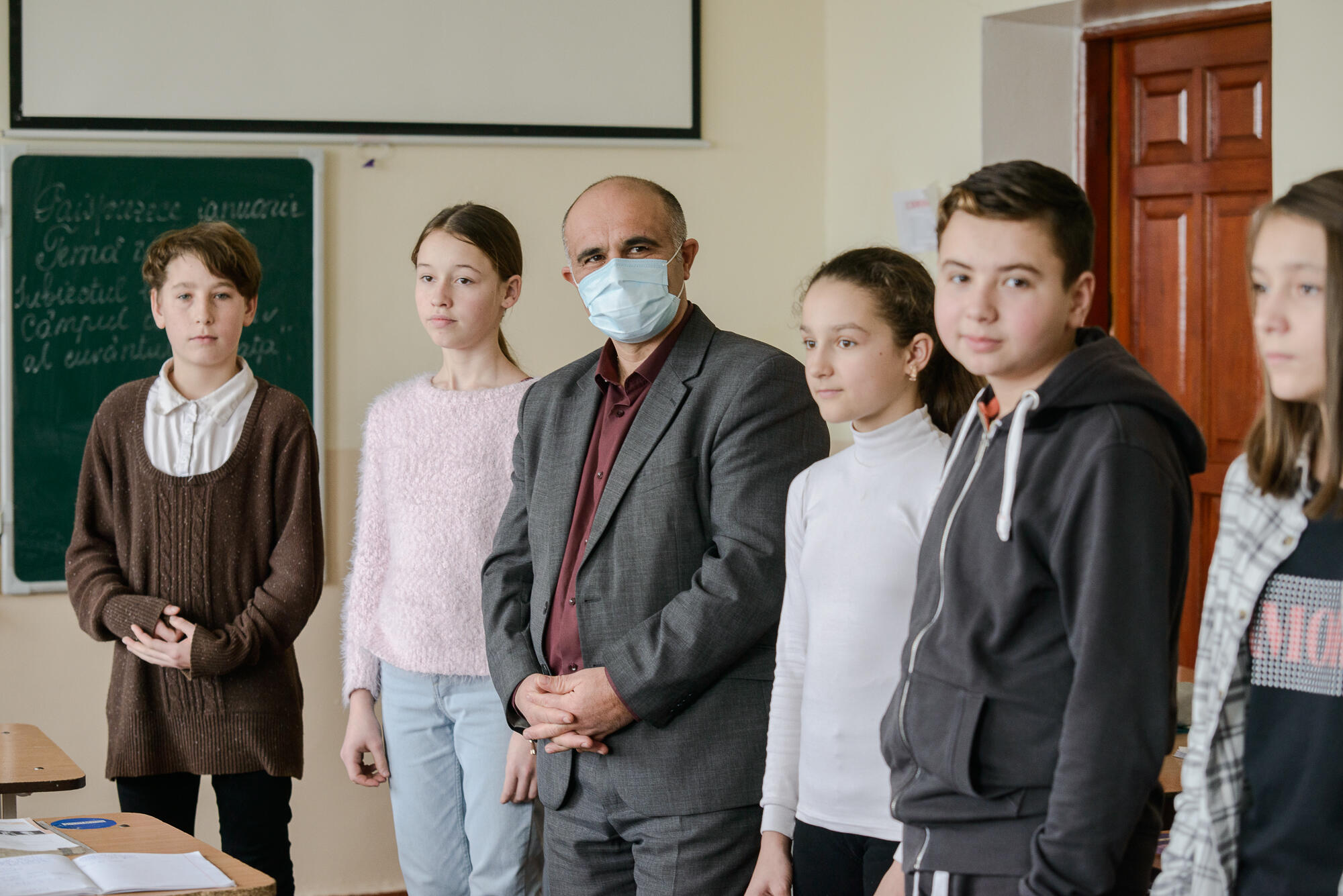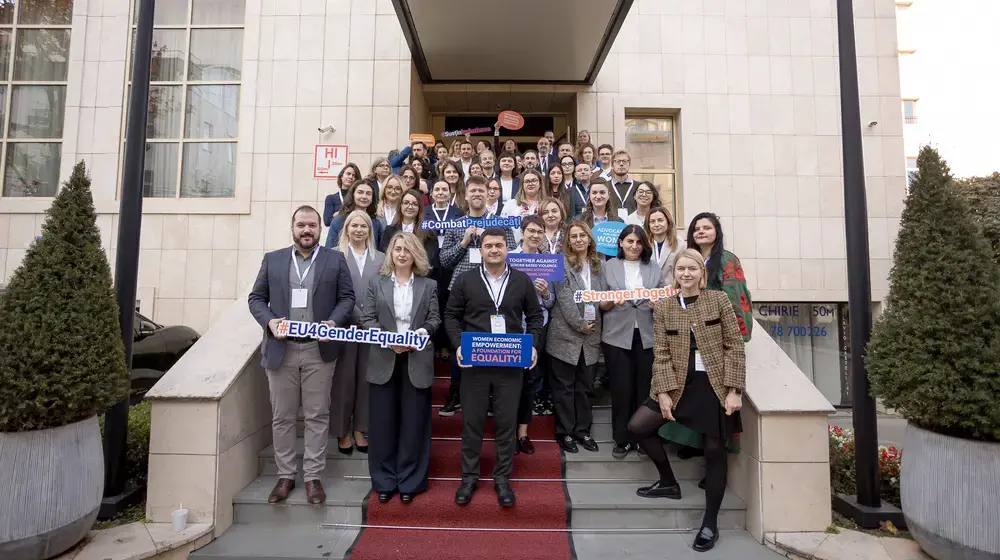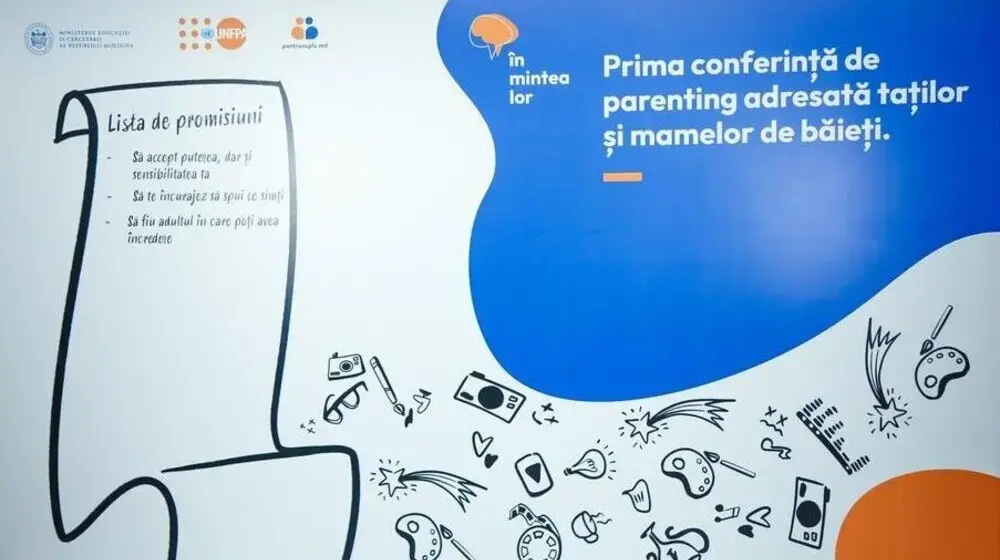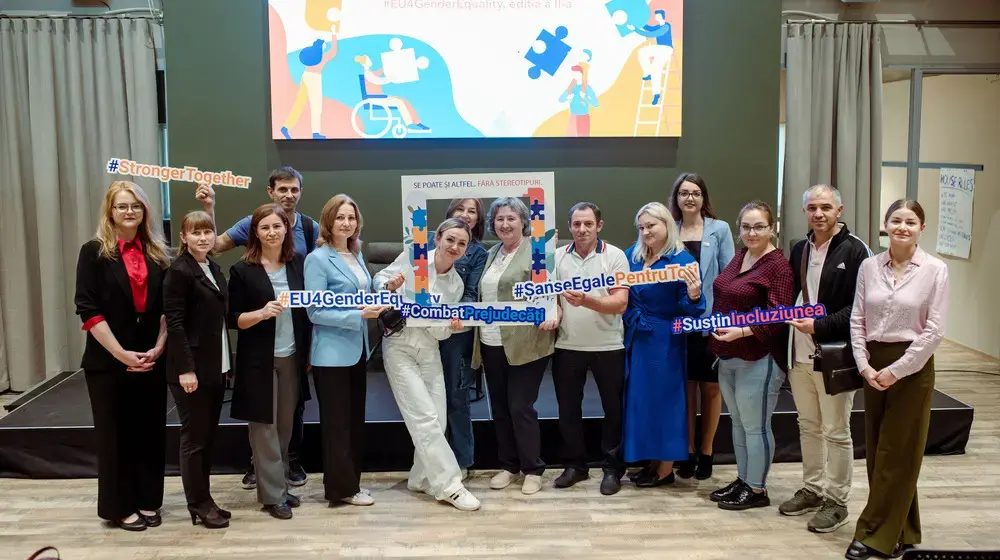During the last months of 2020, eight Fathers’ Clubs started to work in different locations in the Straseni and Falesti districts. The clubs are places for men to come together and talk about the existing perceptions regarding the roles of men and women in family and society and the challenges of active fatherhood. They were established by UNFPA Moldova in partnership with the Child Rights Information and Documentation Center, under the ‘EU 4 Gender Equality: Together Against Gender Stereotypes and Gender-Based Violence’ regional programme, funded by the European Union, and implemented jointly by UN Women and UNFPA.
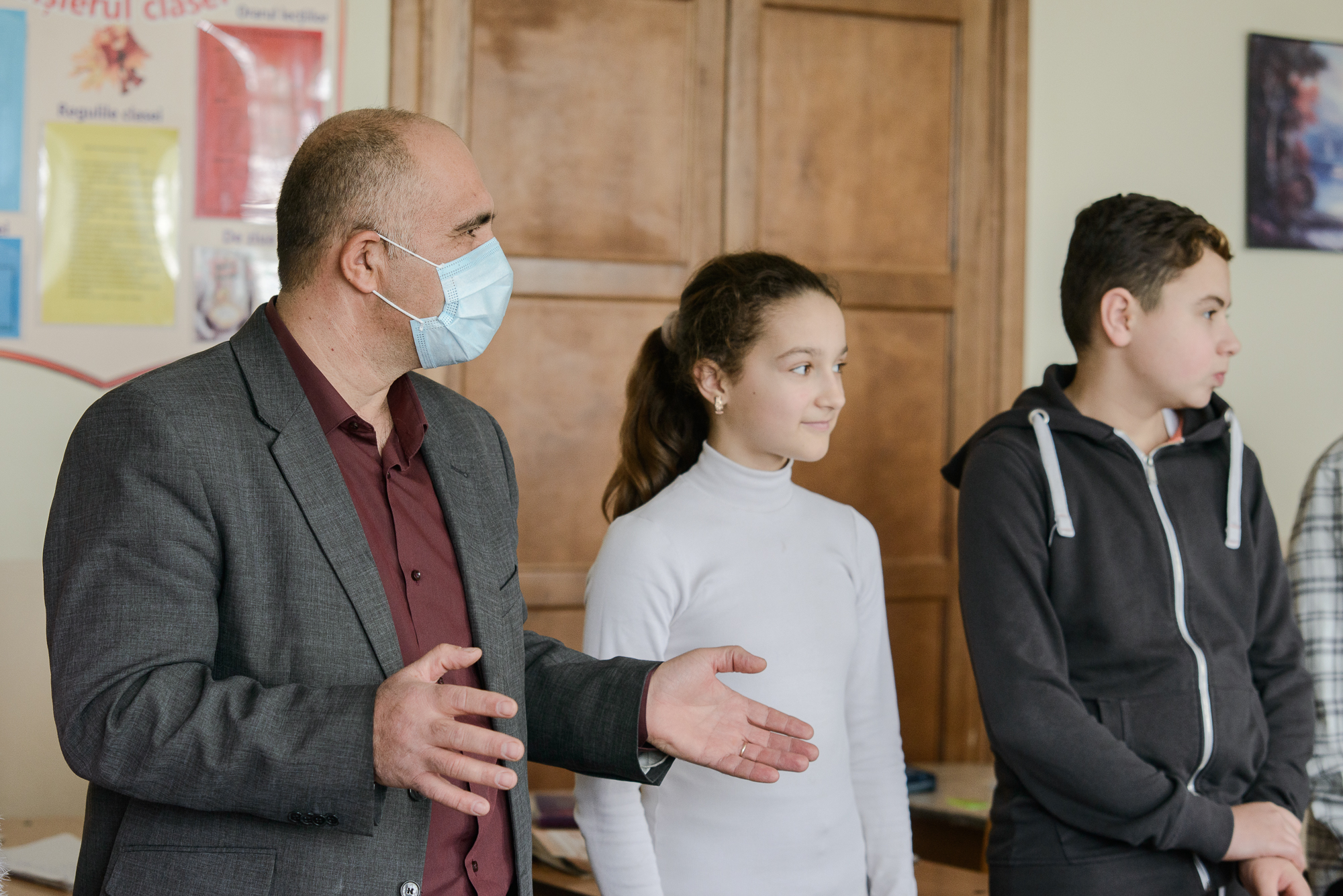
Ion Jitari is the mentor of one of the four Fathers’ Clubs newly opened in the Falesti district. He gathers fathers and fathers-to-be in the Falestii Noi village and together they try to find answers to each other’s questions about the role of men and women in family and society, raising and educating children, and sharing household chores.
‘While previously we were getting involved in infrastructure development projects for educational institutions, we now realize that we have invested enough in school fences and it’s time we invested in people, so that we will have a generation brought up in the spirit of gender equality’, said Ion Jitari when asked about his motivation to get involved in challenging gender stereotypes and promoting gender equality in his community.
‘Not many young men attended the first discussion at the club. Only a few joined. However, more of them came to the next meeting. But I think that the fact that men with different views met in the same room and shared vies, made the skeptics go home with a seed of change,” he added.
Ion Jitari has been a teacher of Mathematics and the principal of the secondary school in the Falestii Noi village for eight years now. Every day, he stands in front of his students and bears the responsibility to be a positive masculine model for the younger generations.
‘It is important to understand that we perpetuate gender stereotypes in schools, too. Textbooks are full of stereotypes. We reprimand the boys more severely and we encourage the girls more, or we guide girls towards studying humanities and boys towards sciences. This is not right. It is important for us, teachers, to become aware of such issues and to try to change them’, said Ion Jitari.
Being convinced that education is key to gender equality and that the teacher has the task to provide behavior models that do not encourage stereotypes, Ion Jitari devotes five minutes to this topic during each of his lessons to talk about gender equality.
” Students are used to this approach now and they correct such issues intuitively when they see them in the textbook. And when I give them home assignments, none of them formulate sentences with stereotypes’, said Ion Jitari.
He does the same with other school activities, which until recently were segregated by gender.
‘We opened the technological education classroom for everyone, both boys and girls. As a result we have boys that crochet and girls that carve wood. At the beginning it made them laugh, but now they’re used to it and never doubt their presence in one activity or another’, admits Ion Jitari.
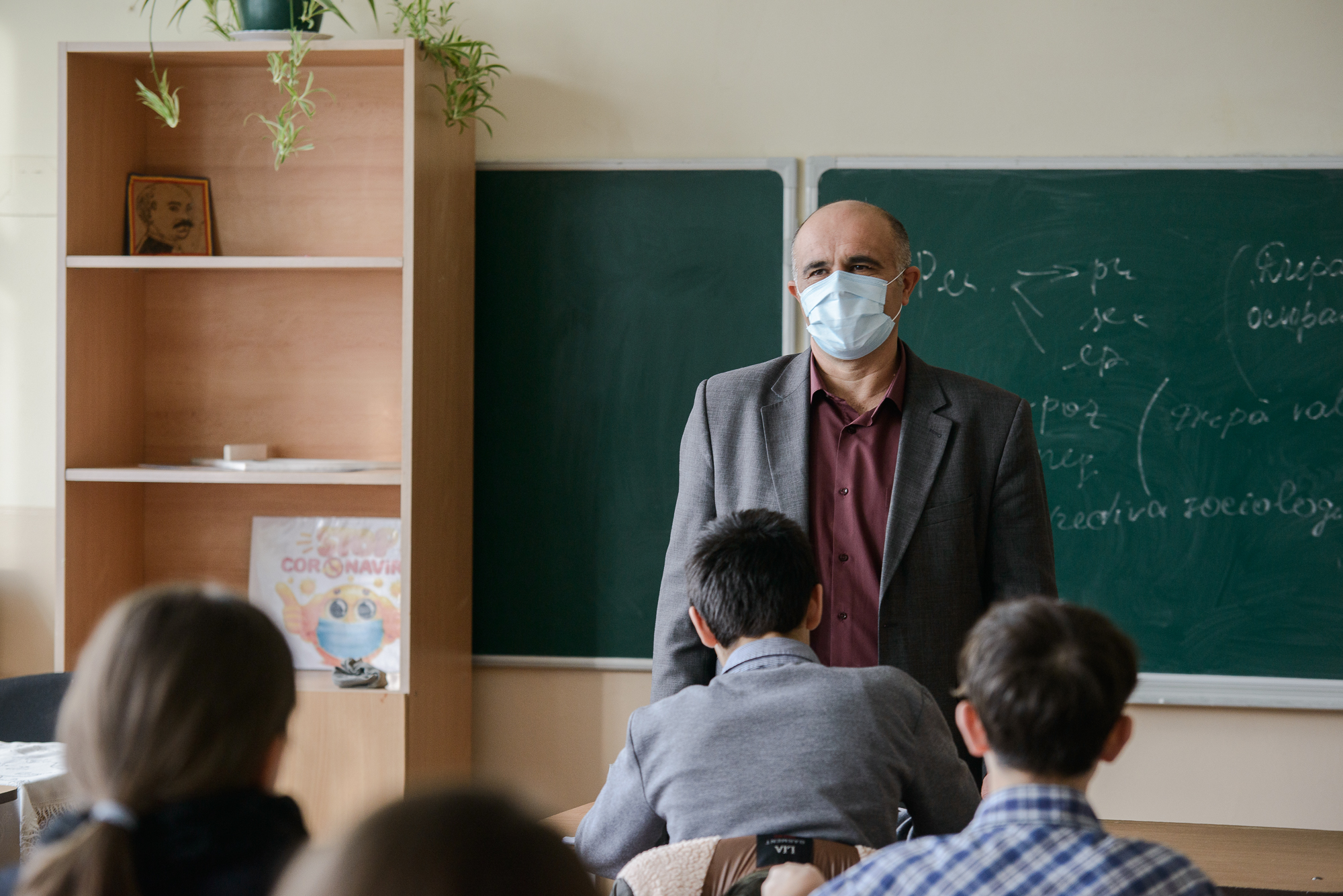
Ion believes that Fathers’ Clubs, like the one he mentors, should be replicated all over the country as an important step towards uprooting the gender stereotypes that delay the development of the entire society.
‘Our society is used to seeing the man bring money home and the woman taking care of the children. We were educated wrongly, both at school and at home. Therefore, it is important to understand this today and teach the next generations that, regardless of their gender, they have equal rights and responsibilities,’ concluded Ion Jitari.
Contact data for media:
Ludmila Bogheanu, Communication Officer, ‘Together Against Gender Stereotypes and Gender-Based Violence’ Regional Program, tel. +37369403016, email: bogheanu@unfpa.org
Photo: @UNFPA Moldova/ Dan Gutu/ 2021

